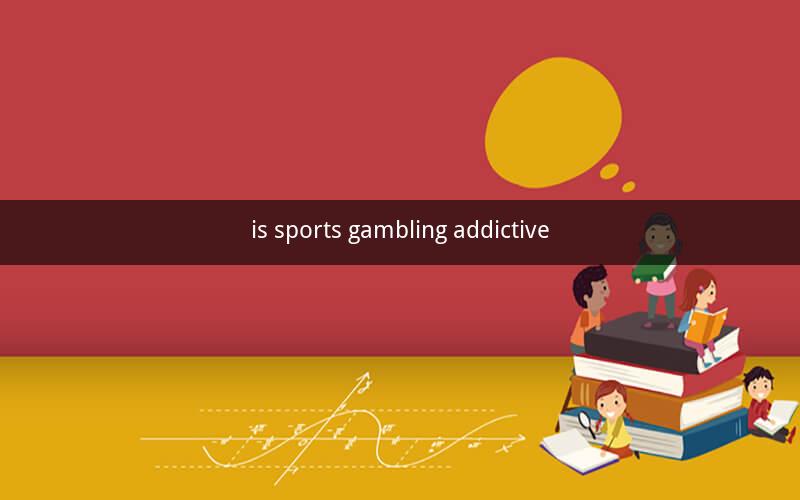
I. Introduction
Sports gambling has become increasingly popular in recent years, captivating the attention of millions of sports enthusiasts worldwide. While it offers a thrilling and potentially lucrative opportunity, there is a growing concern about its potential addictive nature. In this article, we will explore the concept of sports gambling addiction, its symptoms, causes, and the impact it has on individuals and society. Additionally, we will discuss prevention strategies and treatment options for those struggling with sports gambling addiction.
II. Understanding Sports Gambling Addiction
A. Definition of Sports Gambling Addiction
Sports gambling addiction, also known as problem gambling, is characterized by the inability to control the urge to engage in sports betting. Individuals with this addiction often experience significant distress, financial loss, and strained relationships due to their gambling habits.
B. Symptoms of Sports Gambling Addiction
1. Preoccupation with gambling: The individual constantly thinks about gambling, planning their next bet, or reliving past bets.
2. Loss of control: The person struggles to control their gambling behavior, despite experiencing negative consequences.
3. Chasing losses: After losing money, the individual is driven to keep gambling in the hope of recouping their losses.
4. Lying to hide gambling activities: Individuals may lie to family, friends, or employers about their gambling habits.
5. Escalating bets: To sustain the thrill, individuals may start placing larger bets, increasing their financial risk.
6. Neglecting responsibilities: Work, family, and social activities may be neglected in favor of gambling.
III. Causes of Sports Gambling Addiction
A. Psychological Factors
1. Impulse control disorders: Individuals with poor impulse control may be more susceptible to developing a gambling addiction.
2. Depression and anxiety: Those struggling with mental health issues may turn to gambling as a coping mechanism.
3. Low self-esteem: Individuals with low self-esteem may seek validation and excitement through gambling.
B. Environmental Factors
1. Access to gambling: Easy access to sports betting platforms, including online and mobile applications, may contribute to the development of addiction.
2. Social influence: Peer pressure and the desire to fit in with a gambling culture can lead individuals to engage in risky behavior.
3. Media portrayal: The glamorous portrayal of gambling in movies, TV shows, and advertisements may contribute to the allure of sports gambling.
IV. Impact of Sports Gambling Addiction
A. Personal Impact
1. Financial consequences: Individuals with a gambling addiction may face significant financial losses, leading to debt and bankruptcy.
2. Emotional distress: Feelings of guilt, shame, and anxiety can arise due to the consequences of gambling.
3. Strained relationships: Gambling addiction can strain personal relationships, leading to isolation and alienation.
B. Societal Impact
1. Crime: Individuals with a gambling addiction may turn to illegal activities to fund their gambling habits.
2. Healthcare costs: The consequences of gambling addiction, such as mental health issues and substance abuse, can lead to increased healthcare costs.
3. Loss of productivity: Individuals struggling with addiction may experience a decline in work performance, affecting both themselves and their employers.
V. Prevention Strategies
A. Education and Awareness
1. Promoting responsible gambling: Educating individuals about the risks associated with sports gambling can help prevent addiction.
2. Early intervention: Identifying and addressing potential signs of addiction at an early stage can prevent further escalation.
B. Support Systems
1. Counseling and therapy: Professional help can provide individuals with the tools and strategies to overcome their addiction.
2. Support groups: Joining a support group can provide individuals with a sense of community and shared experiences.
VI. Treatment Options
A. Behavioral Therapy
1. Cognitive-behavioral therapy (CBT): CBT focuses on identifying and changing negative thought patterns and behaviors associated with gambling addiction.
2. Contingency management: This approach rewards individuals for non-gambling behaviors and reinforces positive changes.
B. Medication
1. Antidepressants: Medications like SSRIs (selective serotonin reuptake inhibitors) may help alleviate symptoms of depression and anxiety associated with gambling addiction.
2. Naltrexone: This medication blocks the rewarding effects of gambling, reducing the urge to gamble.
VII. Conclusion
Sports gambling addiction is a complex issue that affects individuals and society. Understanding its symptoms, causes, and consequences is crucial in addressing this problem effectively. By implementing prevention strategies and providing access to treatment options, we can help individuals overcome their addiction and lead healthier lives.
1. What are the primary psychological factors contributing to sports gambling addiction?
2. How can easy access to sports betting platforms contribute to the development of addiction?
3. What are some common symptoms of sports gambling addiction?
4. How can early intervention in gambling addiction be beneficial?
5. What role does media portrayal play in the allure of sports gambling?
6. How can counseling and therapy help individuals overcome sports gambling addiction?
7. What are some potential financial consequences of sports gambling addiction?
8. How can support groups assist individuals in their recovery journey?
9. What are the main types of behavioral therapy used in treating sports gambling addiction?
10. How can medication play a role in the treatment of sports gambling addiction?